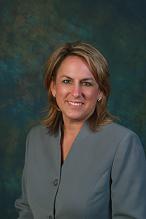 Melissa Dansby is the administrator of the Meridian Surgical Partners’ facility Cleburne Surgical Center in Texas. Here she discusses the importance of a surgery center's relationship with its community and how ambulatory surgery center leaders can forge positive community ties.
Melissa Dansby is the administrator of the Meridian Surgical Partners’ facility Cleburne Surgical Center in Texas. Here she discusses the importance of a surgery center's relationship with its community and how ambulatory surgery center leaders can forge positive community ties.
Sign up for our FREE E-Weekly for more coverage like this sent to your inbox!
Q: Why is it important for a surgery center to establish a positive presence in its local area?
Melissa Dansby: It's about educating the community, both patients and physicians about the benefits of ASCs. It's important for ASCs to get the word out that we are an additional, and many times preferred, option for outpatient surgical care. In many cases, ASCs are a more favorable option than a hospital. ASCs have lower infection rates, typically have a higher nurse-to-patient ratio, and offer a more convenient, comfortable and private setting. Also, in most cases, patients' out-of-pocket costs will be lower. There is just no comparison.
Patients are becoming more intentional about their healthcare choices. As part of this trend, some payers have started offering online price comparison tools, allowing patients to shop around to find the best value. The demand for information exists and ASCs need to demonstrate to patients that they are the favorable option.
Q: What is the main challenge surgery centers face when reaching out in the community?
MD: For so long, hospitals have been the dominant presence in communities. They have more financial resources to dedicate to delivering their messages to patients and physicians. Because of that, hospitals can be more strategic and leverage public relations strategies to gain exposure through media. Hospitals are also showcased more often by media for their "mass" appeal. ASCs have an uphill battle to fight in terms of establishing a presence and reaching out to promote themselves in the community in a cost-effective manner.
Q: What are a few of the best ways surgery centers can reach out to the community?
MD: It honestly starts with making phone calls and being visible. Administrators should strategically research community groups to determine the best fit. Then, ASC leaders should get involved by attending events, volunteering and serving on boards. This exposure increases the opportunity to tell the ASC’s story of how it benefits the community.
Also, ensure your staff can tell your center's story. Everyone at our center is well-versed in doing this so they can describe to patients how our ASC is both clinically and economically beneficial.
Q: How has your surgery center gotten involved with its community?
MD: A few months ago tornadoes devastated a neighboring community. There were organized cleanup efforts and ongoing rebuilding. Our nurses, still in their scrubs after work, handed out water to the cleanup crews. It was just water, but that is so necessary. Community involvement can be more focused on giving time than financial contributions. It should be about commitment and showing people you care through your actions.
More Articles on ASC Issues:
National ASC Day Celebrations
Biggest Opportunities for Orthopedics in ASCs: 3 Orthopedic Surgeons Discuss
6 ASC Administrators on How Their Surgery Centers Are Responding to Healthcare Reform

